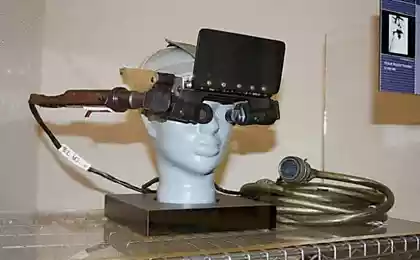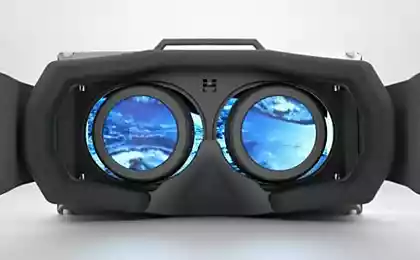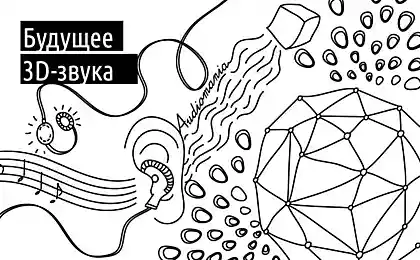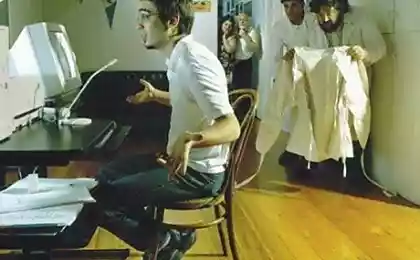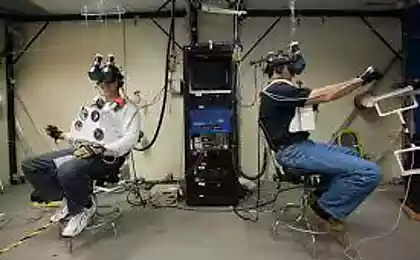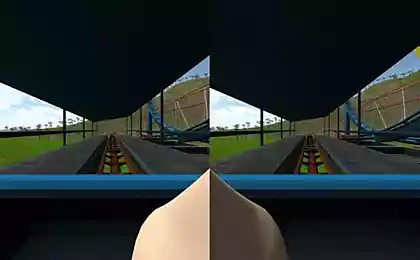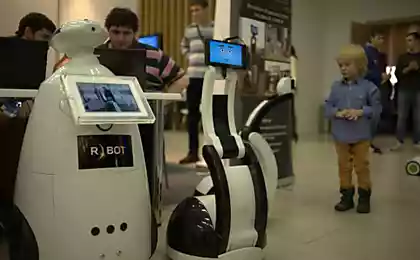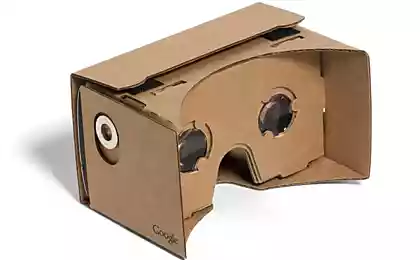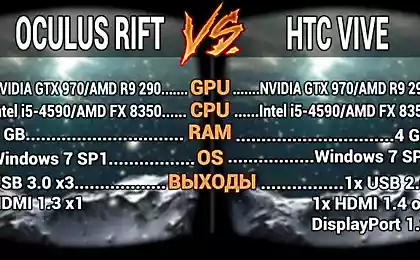703
Think like a criminal. Studying psychology thief in virtual reality
For decades, researchers ask questions criminals to understand how and why they break the law. The answers are not always accurate: the criminals are mistaken in memories and manipulated facts. For psychologists, the best option - to observe the behavior in real time, and then ask questions to the participants. For reasons of ethics and security, rarely observe a crime in progress.
Dr. Claire Nei ( Claire Nee ), operating in the field of forensic psychology, I tried to get close to the process - she interviewed thieves on the streets of the United States and Britain. She asked questions related to the selection of a potential victim, showing maps and photographs of the streets.
But the industry of games and simulation technology have led to the question: is it possible to simulate the environment to observe criminal behavior? After all, virtual reality allows surgeons to train and pilots.
To conduct criminal investigations the team found a house, set up a virtual copy of it and invited former professional robbers learned from him that they would be taken out in real life.

We needed a house that would attract this robber. But not every homeowner will allow rob his house, even a former robber, and not for real. The team turned to the police: the police gave for building the experiment in which they questioned the victims of crime.
Developers modeled on a computer that house, inside it is possible to navigate with a mouse or game controller. Items - valuable and not so - were placed in the same locations in real and simulated homes. To steal something in a virtual house, you have to press on the subject.
Then you need to find a former thief who agree to participate in the experiment. And the team have to be confident that a criminal career criminals experimental stand again on the slippery track. Among the subjects - six men aged between 25 and 33 years, each of which was a few hundred robberies. To compare the results of the experiment attracted six students aged 22-28 years with no criminal record.
On the experimental chamber and sent hitched "rob" a real home at your own pace, by touching items that they would have taken in the course of the crime. Then the video have looked as guinea told about his choice psychologists. Robbery was repeated later on the computer in the virtual building. Between the behavior of students and ex-offenders - a huge difference. Businesses longer were in places where there should be more expensive things, and as a result "stolen" items at a much higher amount. But the most interesting aspect of the most useful for the researchers was the same behavior in real life and in virtual reality.
A better understanding of the behavior of the offender would help in preventing robberies and correction of behavior in prisons. Psychologists through technology got a new tool - a virtual reality that brings researchers to the observations of the real crime.
Source: geektimes.ru/post/251316/
Dr. Claire Nei ( Claire Nee ), operating in the field of forensic psychology, I tried to get close to the process - she interviewed thieves on the streets of the United States and Britain. She asked questions related to the selection of a potential victim, showing maps and photographs of the streets.
But the industry of games and simulation technology have led to the question: is it possible to simulate the environment to observe criminal behavior? After all, virtual reality allows surgeons to train and pilots.
To conduct criminal investigations the team found a house, set up a virtual copy of it and invited former professional robbers learned from him that they would be taken out in real life.

We needed a house that would attract this robber. But not every homeowner will allow rob his house, even a former robber, and not for real. The team turned to the police: the police gave for building the experiment in which they questioned the victims of crime.
Developers modeled on a computer that house, inside it is possible to navigate with a mouse or game controller. Items - valuable and not so - were placed in the same locations in real and simulated homes. To steal something in a virtual house, you have to press on the subject.
Then you need to find a former thief who agree to participate in the experiment. And the team have to be confident that a criminal career criminals experimental stand again on the slippery track. Among the subjects - six men aged between 25 and 33 years, each of which was a few hundred robberies. To compare the results of the experiment attracted six students aged 22-28 years with no criminal record.
On the experimental chamber and sent hitched "rob" a real home at your own pace, by touching items that they would have taken in the course of the crime. Then the video have looked as guinea told about his choice psychologists. Robbery was repeated later on the computer in the virtual building. Between the behavior of students and ex-offenders - a huge difference. Businesses longer were in places where there should be more expensive things, and as a result "stolen" items at a much higher amount. But the most interesting aspect of the most useful for the researchers was the same behavior in real life and in virtual reality.
A better understanding of the behavior of the offender would help in preventing robberies and correction of behavior in prisons. Psychologists through technology got a new tool - a virtual reality that brings researchers to the observations of the real crime.
Source: geektimes.ru/post/251316/
